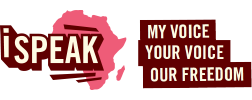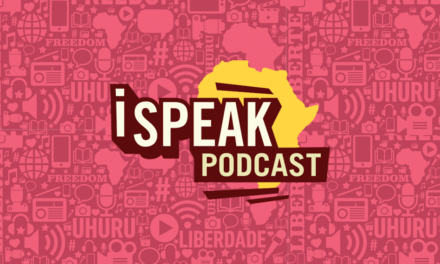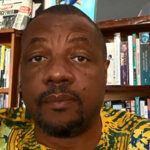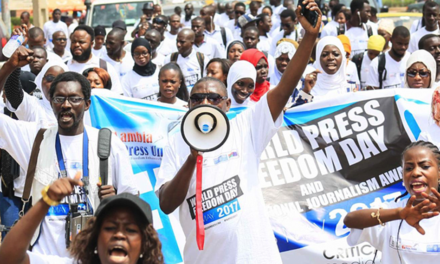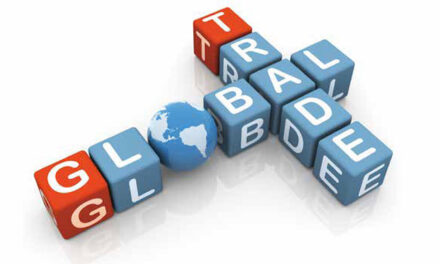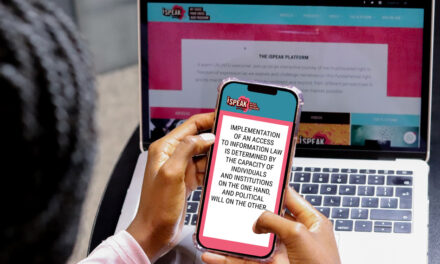
An end-to-end Africa initiative
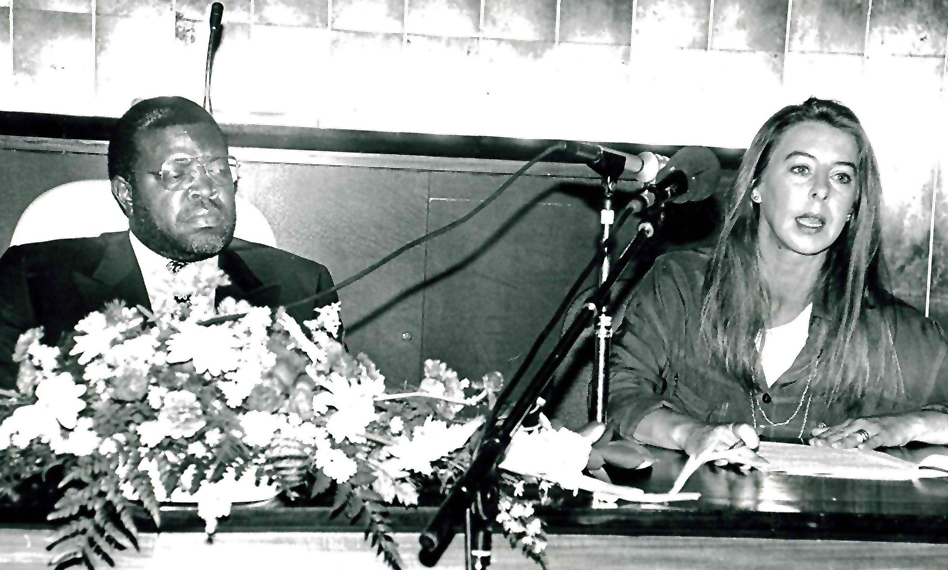
30 years ago, press freedom was unanimously supported by UNESCO and the United Nations …
ALAIN MODOUX, former Assistant Director-General of UNESCO for Freedom of Expression, Democracy and Peace, recalls how the diplomatic process he personally steered for two and a half years led the United Nations General Assembly to proclaim 3 May “World Press Freedom Day”. Twenty years later, he was awarded UNESCO’s Taïno Medal for his “outstanding contribution” to the creation of this Day.
On 3 May 2022, the world celebrates for the 29th consecutive time “World Press Freedom Day”, the principle of which was decided by consensus in December 1993 by the United Nations General Assembly. By choosing this date, the Assembly wished to pay tribute to the 60 or so African journalists who, meeting in the capital of Namibia on the initiative of UNESCO and the United Nations, adopted the “Windhoek Declaration on Promoting an Independent and Pluralistic African Press” on 3 May 1991. This founding text, which defines the conditions necessary for the democratic functioning of the media, was the “mother” of four other regional Declarations that resulted from seminars similar to the one held in Namibia. The first one brought together media professionals from Asia (Alma Ata, Kazakhstan, 1992), the second from Latin America and the Caribbean (Santiago de Chile, 1994), the third from the Arab countries (Sana’a, Yemen, 1996) and the fourth from Europe and North America (Sofia, Bulgaria, 1997). The Windhoek Declaration as well as the four other regional Declarations, although openly denouncing the policies and practices of some States vis à vis the media of many countries (without naming them), were adopted, without any modification or opposition, by all UNESCO Member States who unanimously acknowledged that the Windhoek Seminar played a “catalytic role” in the democratisation process that marked the international democratic landscape throughout the 1990s.
The lost illusions of the early 1990s
Given the current state of international relations, it is hard to believe that such unanimity was possible on a subject as sensitive as press freedom! Just for the record, the years immediately following the fall of the Berlin Wall on 9 November 1989 were a promising period for democracy and human rights. The multilateral system set up in the aftermath of the Second World War and rapidly undermined by the East/West rivalry had finally found its feet. More peaceful international relations then seemed possible and sustainable. The adoption of “World Press Freedom Day” is probably the most representative illustration of the prevailing optimism at that time. While the control of information had been one of the main issues of the Cold War for more than 40 years, the international community, by adopting the principle of this “World Day”, had managed to agree, and this without opposition, on the importance of a free, independent and pluralistic press.
“World Press Freedom Day”, an end-to-end African initiative
This unanimity would probably not have been possible without the resolute and continued commitment of African diplomats, collectively at UNESCO, within the Africa Group chaired by the Ambassador of Niger, Lambert Messan, and individually at ECOSOC in Geneva, a UN body entrusted, inter alia, to make recommendations to the General Assembly. These diplomats convinced their non-African colleagues that the idea of establishing a “World Press Freedom Day” was born in Africa and that it would be carried through to its conclusion by Africans. In New York, it was enough for the Namibian Ambassador to the UN to call on all his colleagues to support the ECOSOC recommendation for it to be adopted without discussion by the General Assembly.
This ‘diplomatic ownership’ of the Windhoek legacy by Africans was key to the success of the entire process. Furthermore, the approach of dealing with the highly sensitive issue of press freedom region by region, starting with Africa, helped to “de-westernize” the perception of the South on this issue. In this respect, African journalists and diplomats played their leadership role perfectly. Impressed by these expressions of support from all continents, Ambassador Messan did not hesitate to state solemnly that “the Windhoek Declaration is Africa’s contribution to the edifice of human rights” !
The leading role played by Africans in the Windhoek process seems to have been appreciated by many countries. This feeling was confirmed by the Chinese representative to the UNESCO General Conference. When asked about his delegation’s position on the proposal to declare 3 May “World Press Freedom Day”, he replied that “as long as the proposal came from the Africa Group, his delegation could not but support it”. That was 30 years ago!
PHOTO: Gwen Lister, founder of The Namibian newspaper and chair of the 1991 Windhoek Declaration conference, with Namibia’s President Dr. Hage Geingob, then Prime Minister. Courtesy of The Namibian
